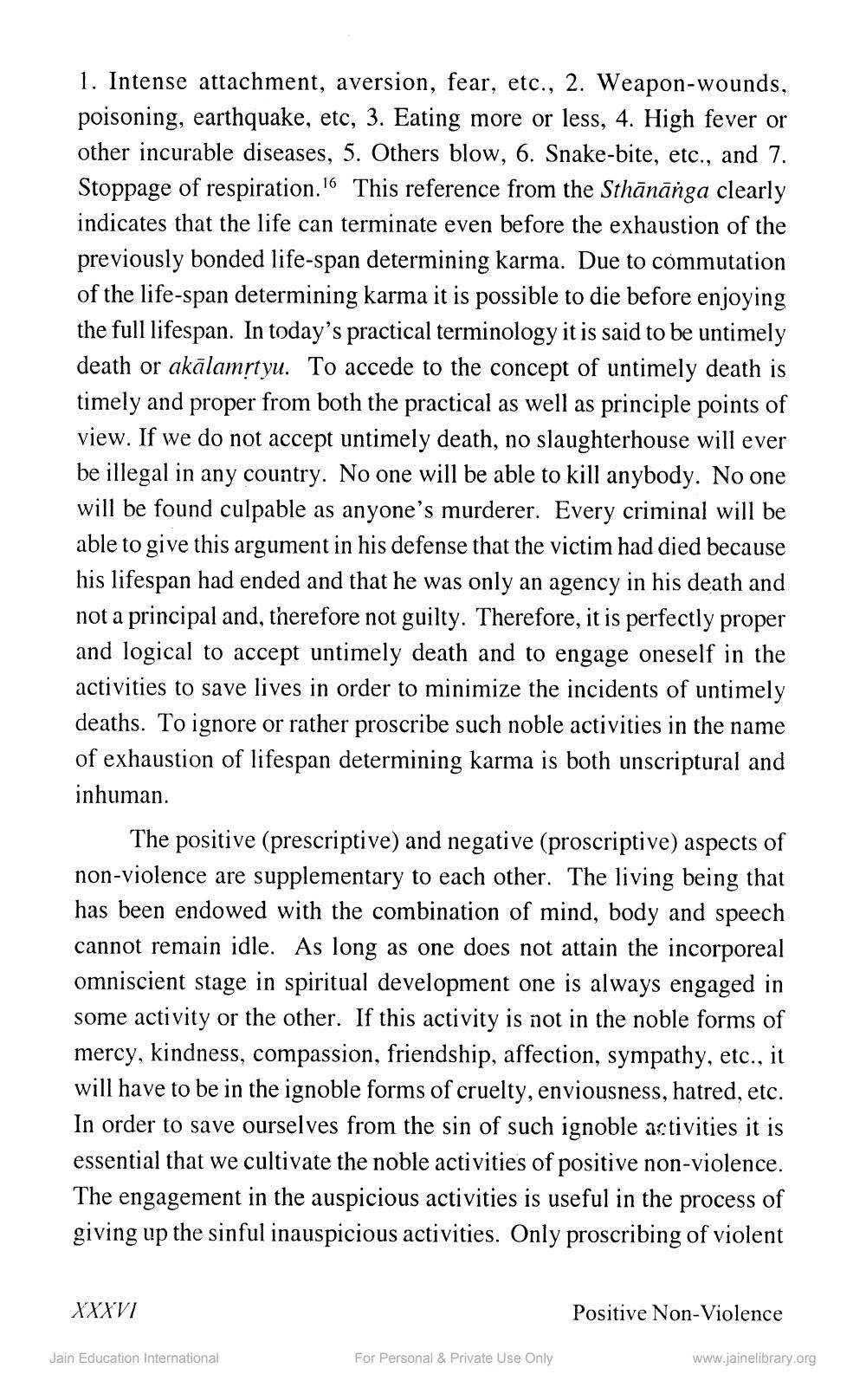________________
1. Intense attachment, aversion, fear, etc., 2. Weapon-wounds, poisoning, earthquake, etc, 3. Eating more or less, 4. High fever or other incurable diseases, 5. Others blow, 6. Snake-bite, etc., and 7. Stoppage of respiration.16 This reference from the Sthānānga clearly indicates that the life can terminate even before the exhaustion of the previously bonded life-span determining karma. Due to commutation of the life-span determining karma it is possible to die before enjoying the full lifespan. In today's practical terminology it is said to be untimely death or akālamrtyu. To accede to the concept of untimely death is timely and proper from both the practical as well as principle points of view. If we do not accept untimely death, no slaughterhouse will ever be illegal in any country. No one will be able to kill anybody. No one will be found culpable as anyone's murderer. Every criminal will be able to give this argument in his defense that the victim had died because his lifespan had ended and that he was only an agency in his death and not a principal and, therefore not guilty. Therefore, it is perfectly proper and logical to accept untimely death and to engage oneself in the activities to save lives in order to minimize the incidents of untimely deaths. To ignore or rather proscribe such noble activities in the name of exhaustion of lifespan determining karma is both unscriptural and inhuman.
The positive (prescriptive) and negative (proscriptive) aspects of non-violence are supplementary to each other. The living being that has been endowed with the combination of mind, body and speech cannot remain idle. As long as one does not attain the incorporeal omniscient stage in spiritual development one is always engaged in some activity or the other. If this activity is not in the noble forms of mercy, kindness, compassion, friendship, affection, sympathy, etc., it will have to be in the ignoble forms of cruelty, enviousness, hatred, etc. In order to save ourselves from the sin of such ignoble activities it is essential that we cultivate the noble activities of positive non-violence. The engagement in the auspicious activities is useful in the process of giving up the sinful inauspicious activities. Only proscribing of violent
XXXVI
Positive Non-Violence
Jain Education International
For Personal & Private Use Only
www.jainelibrary.org




